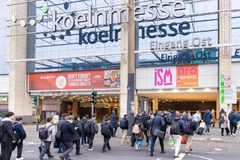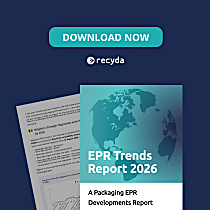Airnov Healthcare Packaging challenges plastic pails with carbon-cutting cartons

04 Feb 2022 --- Airnov Healthcare Packaging is introducing an environmentally sustainable packaging solution to replace plastic pails and reduce waste. The new packaging consists of cardboard from replantable trees that can be recycled or naturally decompose.
Nicolas Martinez, global product manager at Airnov, tells PackagingInsights: “The carton boxes are sourced domestically in the US. Cardboard box packaging is one of the most recycled materials, with over 90% of cardboard made from recycled papers and cartons.”
“With this new option from our plant in Belen, we hope to pull hundreds of metric tons of plastic out of use by converting secondary packaging from plastic to cardboard.”
“Cartons are more lightweight and efficient in the space they use, optimizing transport and warehouse space.”

The carton packaging boasts similar performance to plastic pails by utilizing high-barrier bags, which provide competitive shelf life for three years, adds Martinez.
The new packaging solution is available now for drop-in products, including Airnov’s entire range of drop-in desiccants such as packets, bags and canisters in all weights and sizes.
.jpg) The carton packaging performs equally well to plastic pails by utilizing high-barrier bags.More material, less emissions
The carton packaging performs equally well to plastic pails by utilizing high-barrier bags.More material, less emissions
Airnov says the new offering not only targets plastic consumption but aims to reduce transportation emissions by using double-stackable cartons.
Since the new carton is more durable than standard cardboard, pallets can be double stacked with 50% more material in the same footprint as a single pallet.
Martinez explains the company “sourced a carton specifically designed to bear the weight of a double-stacked pallet. Using a double-wall construction, the boxes are better able to bear this weight over a standard single-wall box.”
With the additional materials, Airnov aims to help customers reduce freight costs and the number of trucks needed to transport goods, saving money and minimizing carbon emissions.
Reduced extraneous materials
Additionally, Airnov has removed humidity indicator cards to reduce extraneous materials and chemicals used in the packaging.
“It’s a noble thing to offer a more [environmentally] sustainable option,” continues Martinez. “However, without demonstrable benefits to our customers, it is still often challenging to encourage adoption.”
“This new endeavor not only reduces plastic and other waste but helps our customers mitigate skyrocketing freight and commodity costs. With the volatility in the resin supply chain, who knows what’s next with plastic prices.”.jpg) Airnov’s new offering aims to reduce transportation emissions by using double-stackable cartons.
Airnov’s new offering aims to reduce transportation emissions by using double-stackable cartons.
Last year, Airnov Healthcare Packaging expanded its range of Aroma-Can products to incorporate a wider range of flavors and scents. The canisters improve user experience in various food, vitamin and nutraceutical products by masking or enhancing scents.
Other cardboard developments
In other news, International Paper set a new production record at its Spanish mill in Madrid in the last quarter of 2021. At the end of the year, the Spanish mill reached a total production volume of 1 million tons of high-performance, lightweight recycled containerboard, after the completion of a conversion investment in August 2018.
At the end of last year, Amazon launched curbside recyclable paper packaging for frozen and chilled foods in the US, slashing single-use plastic waste. Regionally produced, the packaging is delivered to Amazon Fresh grocery hubs, stores and Whole Foods Market locations, reducing transport distances and associated carbon emissions.
By Natalie Schwertheim











